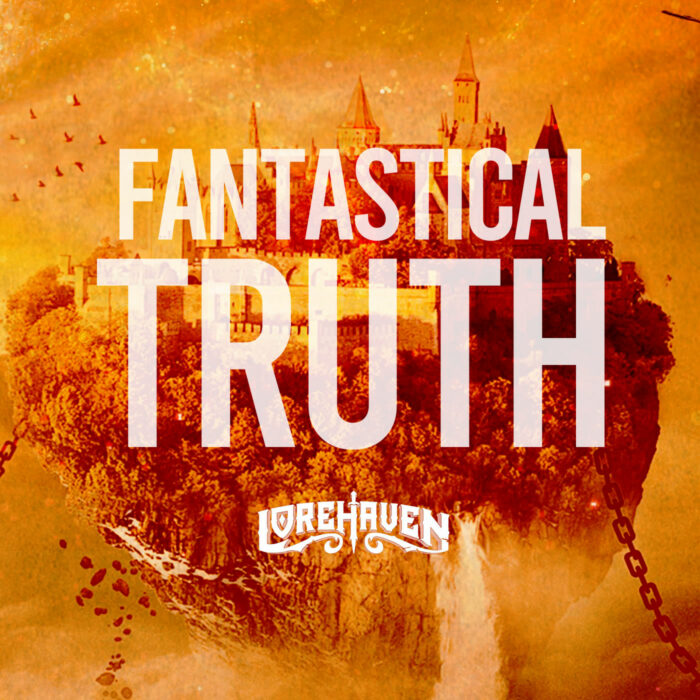Explore Epic Resurrection in the Fantastical Truth Podcast’s New Series
In case you haven’t noticed, I tend to write a lot about resurrection on SpecFaith. Now that joyous theme has crossed to the Fantastical Truth podcast from Lorehaven. It’s perfect for celebrating Jesus’s glorious resurrection promises all month long.
In part 1, we focus on what Scripture says about Christians’ resurrected bodies.1
Concession stand
- Of course, this series will be a very brief survey of the topic.
- We’ll include lots of verses, references, and books in the show notes.
- We do presume you’re familiar with words like “soul,” “resurrection,” etc.
- We know this is part of a bigger conversation about all Jesus’s promises.
- Does this sound “materialistic”? It might. So let’s be clear: materialism’s bad.
- Also, we’ll strive to base any speculation on what the Bible actually says.
 Exploring the resurrection of our bodies
Exploring the resurrection of our bodies
- What does resurrection mean to us?
- Do Christians believe resurrection is physical?
- How is resurrection is a process, first spiritual, then ending when our bodies are made new?
- What verses (such as 1 Corinthians 15:44, 50) are used to deny the material nature of resurrection?
- How does our speculation about our resurrected bodies start with the clear promises Jesus has given in his word?
More notes for question 5:
- Does that mean we get “superpowers”? Fly? Walk through walls?
- I don’t think so. Any of that is speculation. Jesus is still super-supernatural.
- Scripture’s prophecies emphasize our humanity. Being human is good.
- We won’t know everything. (That really would make heaven “boring”!)
- I doubt we’ll have angel-like powers. Video games in “God mode”? Boring!
- OT prophecies talk about owning land, farming, animals, basic human stuff.
- We’ll get into more of that in our future podcast about culture and stories.
- Still, best example is Jesus. Remember: he ate food. He was real.
- By the way: Jesus is still human to this day. How does it work? Mystery!
- Mysteries do remain. But our speculations *start* with accepting humanity.
- It helps to know that resurrected people will dwell in a resurrected creation.
Next on Fantastical Truth
In our next episode, part 2 of this series, we’ll ask: well, if Jesus redeems not just our souls but our whole human bodies, where are we going to live forever and ever? Do we get whisked up to “heaven”? Or (hint, hint) does Jesus actually promise that New Heavens will touch down to New Earth for an eternal union of these realms, so that “the dwelling of God is with man”? This is even more amazing stuff, and for those who love Jesus it is absolutely life-changing.
- This article excerpts the complete show notes, with a little extra at the end. ↩






























I haven’t listened to the podcast, but the Old Testament prophecies you reference in your summary that include activities like farming, i.e. ordinary life, are seen by many Evangelical scholars as applying to the Millennium of God’s direct rule on the Earth that exists now and not as applying to the eternal state of a “new heaven and a new earth” of Revelation 21-22.
I would say that only a little bit of Scripture addresses what will happen after the new heaven and new earth are created. And mostly, we just don’t know what the far future will be like, when New Jerusalem is established. We don’t even have any clear reasons to think life will be ordinary–though it may be in many ways.
There is no biblical case that these “ordinary” human activities (any literal Millennium notwithstanding) should be presumed aborted or superseded by some other form of existence. The onus is on these scholars, or anyone else, to show from Scripture that there is some direct or indirect divine purpose to truncating these human activities—instead of presuming the onus of proof is on the person who supposes that these non-sinful, deeply human, Genesis 1:28–directed activities will continue forever (and, even better, will be redeemed from sin’s corruption). Why would we presume that a Millennium period would be materially unlike the New Heavens and New Earth? From where does this assumption arise?